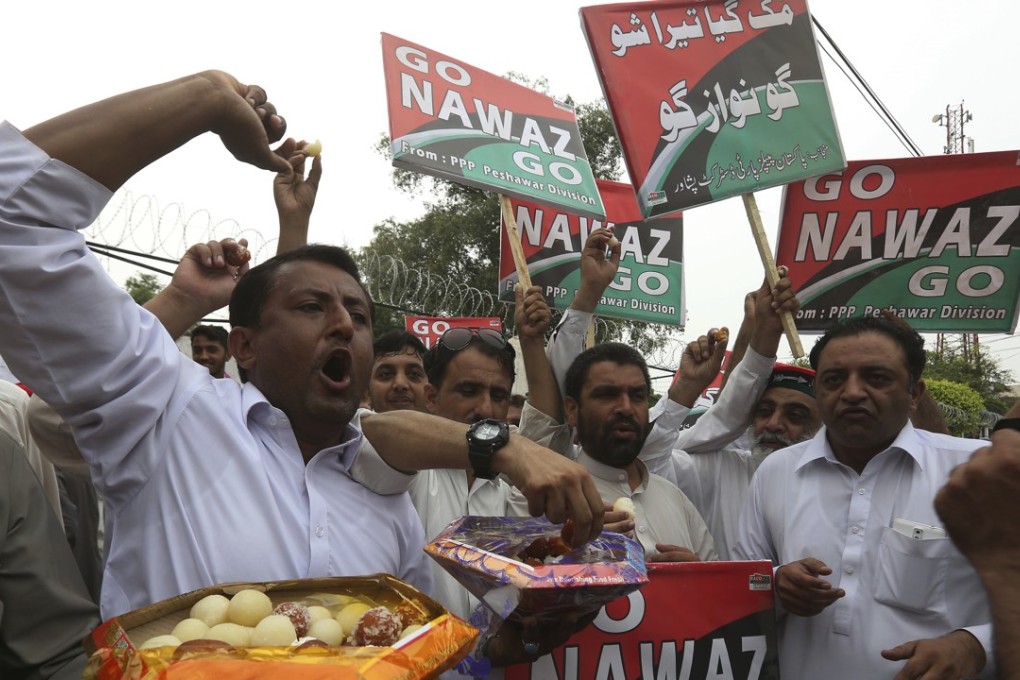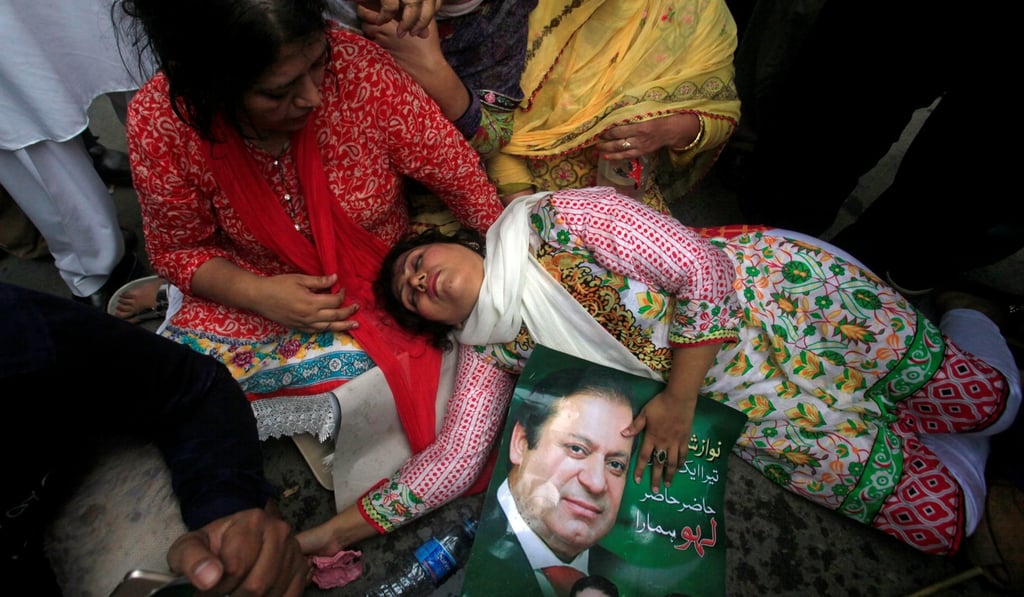Nawaz Sharif’s exit shows generals are no longer calling the shots as Pakistan battles corruption
Syed Fazl-e-Haider says the Pakistani prime minister’s ouster following a Supreme Court ruling is a step forward for the rule of law in a nation where power and corruption often go hand in hand

In the past, it was Pakistan’s powerful military that had dismissed civilian governments, mainly over corruption. It is not the generals but the judges who are calling the shots in Pakistan today. The effective ouster of Sharif by the court was within the constitutional framework. Its judgment endorses the argument that a powerful judiciary can shut the door to military intervention and pave the way for a smooth running of the democratic system in Pakistan.

Pakistanis in Hong Kong call on government to bar Prime Minister Nawaz Sharif from entering city
A host of financial scams and scandals involving billions of rupees and corrupt authorities have come to the surface over the last nine years of democratic regimes. The ruling elite are not ready to give up their luxuries and status in a country where up to 40 per cent of a populace of 200 million live below the poverty line.